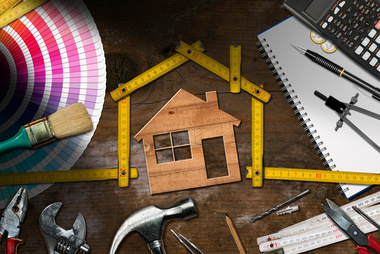
Check out these five changes your home is begging for now that you have an empty nest.
First-Floor Guest Bedroom
Think about rearranging the layout of your home now that the kids are out of the house. You might already have plans to turn one of your kids’ bedrooms into a guest bedroom; however, if it’s on the second floor, consider using a room on the first floor. For now, you can use it for guests, but if you plan to stay in your home for the rest of your life, you may want your bedroom to be on the first floor when you get older.
Create Extra Space With Fewer Walls
If you have a few smaller rooms that were once kids’ bedrooms, consider knocking down a wall or two to create one larger space. It makes sense to have lots of smaller rooms if you have a house full of kids, but now that it’s just you or you and your spouse, you can keep one bedroom for guests and create a bigger room to serve a more meaningful purpose, such as a studio, office or home gym.
Kitchen Facelift
With lots of people in the house, it can be tricky to do any kind of home upgrade or renovation. Now that you have an empty nest, consider making kitchen upgrades that you’ve been putting off. Does the tile need work? Do the cabinets need replacing or maybe just some paint? You could also update old appliances — now is the best time to do whatever needs to be done to bring your kitchen up to date.
Master Bath Enhancements
With kids out of the house, you will have more time to yourself and hopefully to pamper yourself. Make some updates to the master bathroom by changing the counters and cabinets and/or adding ambient lighting with a dimmer. Add a bench in the shower and a heated towel rack. Replace towels with ones that are plush and soft. Do whatever is necessary to make your bathroom feel more like a spa. You deserve it!
Update Your Most-Used Furniture
Maybe you didn’t want to invest in high-end furniture while you were raising kids because you feared stains and smears on expensive items. However, now is the time to invest in a little luxury. You can transform your home into more of an adults’ house by swapping out some older pieces of furniture for something tasteful and refined.
Looking for even more ways to update your home? Give me a call today! I love sharing my expertise.

